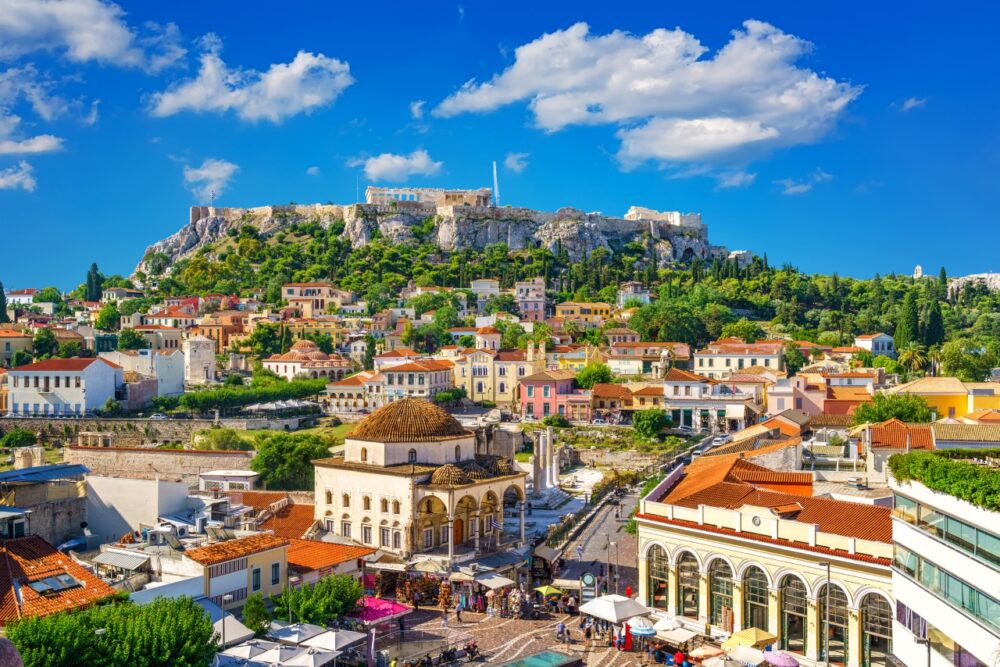
Introduction
When it comes to travel destinations that offer history, culture, stunning landscapes, and delicious food, Greece ticks all the boxes. Whether you’re strolling through ancient ruins in Athens, soaking up the sun on the beaches of Mykonos, or hiking through the mountains of Crete, Greece is a country that will steal your heart. The mix of ancient heritage, breathtaking islands, and the warm hospitality of the locals makes Greece a place you’ll want to return to again and again.
I first visited Greece years ago and have been back several times since. Each visit, I discover something new. From its historic cities and idyllic islands to its rich traditions and laid-back lifestyle, Greece is a country that feels both timeless and endlessly exciting. Whether you’re a history buff, a beach lover, or an adventure seeker, Greece has something special for everyone. Let’s explore why Greece should be at the top of your travel list.
Table of Contents
Reasons You Should Visit Greece
1. A Rich Tapestry of History
Greece’s history is legendary, and there’s no better place to experience it than by standing among its ancient ruins. The Acropolis in Athens is perhaps the most iconic symbol of ancient Greece, and walking up the hill to see the Parthenon against the blue sky is a bucket-list moment. As you wander through the city, reminders of the country’s rich past are everywhere—temples, theatres, and statues that have stood the test of time.
But it’s not just Athens where history comes to life. Visit Rhodes and explore its medieval Old Town, or head to Crete to see the Palace of Knossos, the heart of the Minoan civilization. No matter where you go in Greece, you’re walking in the footsteps of legends.
2. Stunning Islands and Beaches
Greece is famous for its islands—each one more beautiful than the last. Whether you’re looking for lively nightlife or quiet coves, the Greek islands offer something for every kind of traveller. Mykonos is the place to go for chic beach clubs and sunset parties, while Santorini is known for its romantic views, white-washed buildings, and volcanic beaches.
For a more laid-back island experience, head to Zakynthos or Corfu, where the beaches are quieter but no less beautiful. One of my favourite memories from Greece was swimming in the clear waters of Navagio Beach on Zakynthos, with its towering cliffs and famous shipwreck. Greece’s islands truly feel like paradise, each with its own unique charm and character.
3. Incredible Food and Wine
Greek cuisine is reason enough to visit the country. The food is simple, fresh, and packed with flavour, from juicy grilled souvlaki to creamy tzatziki, and the freshest seafood you can imagine. I still dream about the plates of moussaka and dolmades (stuffed grape leaves) I had in a taverna in Crete, washed down with a glass of local wine. Speaking of wine, Greece’s wine scene is underrated—don’t leave without trying the Assyrtiko from Santorini or the Agiorgitiko from the Peloponnese.
For the best experience, head to a family-run taverna and order whatever the locals are having. You’ll often find yourself eating surrounded by olive trees and vineyards, making the food taste even better. Greece is a place where meals are to be savoured, shared, and enjoyed over hours of good conversation.
4. Warm Weather and Sunshine Year-Round
One of the best things about Greece is its fantastic weather. With more than 300 days of sunshine a year, you can enjoy the beaches, hike through stunning landscapes, or explore ancient ruins in comfort. The long summer days are perfect for lounging by the water or enjoying a late dinner in a seaside taverna.
Even in the cooler months, Greece’s mild climate makes it a great destination for off-season travel. I once visited Thessaloniki in autumn, and while it was too chilly for swimming, it was perfect for exploring the city’s markets and archaeological sites without the crowds. No matter when you visit, the sun seems to shine a little brighter in Greece.
5. Friendly People and Relaxed Vibe
The Greek concept of philoxenia—the love of strangers—runs deep in the culture, and it’s something you feel as soon as you arrive. Whether it’s a warm welcome in a family-run guesthouse or a stranger offering you a glass of ouzo, the Greek people are known for their generosity and hospitality. I’ve lost count of the number of times I’ve been invited to join a meal or offered a tip on the best local beach.
The relaxed pace of life in Greece is contagious. Time seems to slow down here, and soon you’ll find yourself lingering over meals, taking siestas, and adjusting to the Greek way of life. It’s a country where you can truly unwind and experience life at a slower, more meaningful pace.
Best Places to Visit in Greece
1. Athens

No trip to Greece is complete without visiting Athens, the ancient heart of the country. The highlight is, of course, the Acropolis, where you can marvel at the Parthenon and other ancient temples. The views from the top are breathtaking, especially at sunset when the city below is bathed in golden light. I spent hours wandering through the Acropolis Museum, which provides fascinating context to what you’ve just seen.
But there’s more to Athens than just ancient history. Monastiraki and Plaka, with their narrow streets, bustling markets, and charming cafés, offer a taste of the city’s vibrant present. Don’t miss the chance to try some of Athens’ famous street food—grab a souvlaki or a gyro as you explore the city’s neighbourhoods.
2. Thessaloniki
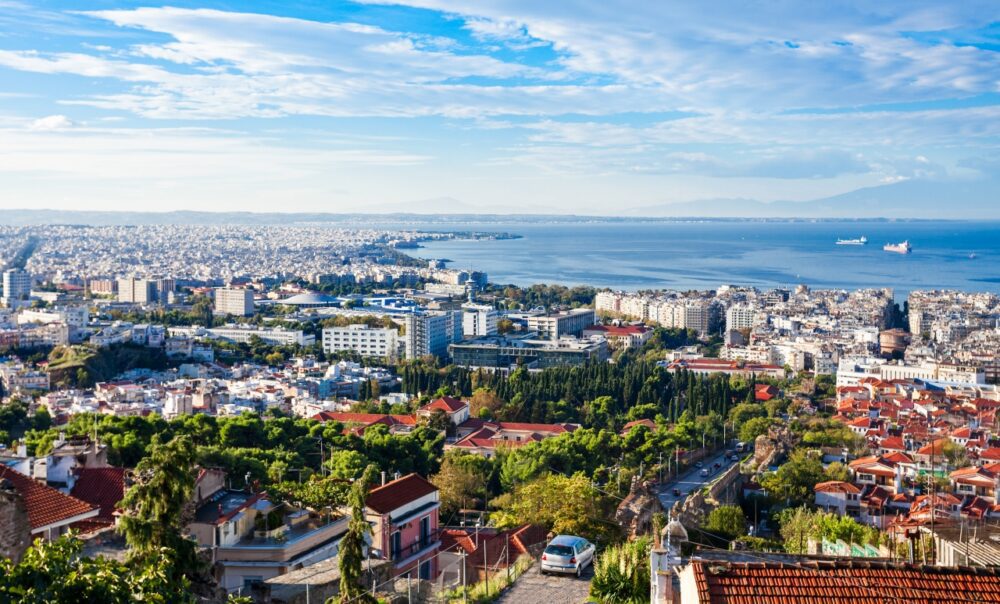
Thessaloniki, Greece’s second-largest city, is known for its rich history, lively cultural scene, and buzzing nightlife. It’s a city that feels both ancient and modern, with Byzantine walls, Ottoman relics, and Roman ruins scattered among contemporary bars and restaurants. I started my visit with a walk along the White Tower, Thessaloniki’s iconic waterfront landmark, and ended it in Ladadika, a vibrant district filled with tavernas and live music.
Thessaloniki is also famous for its food—this is where I had some of the best bougatsa (a custard-filled pastry) and koulouri (a sesame bread ring) of my life. The city’s energy and creativity make it a fantastic destination for travellers looking to experience a less-touristy side of Greece.
3. Mykonos
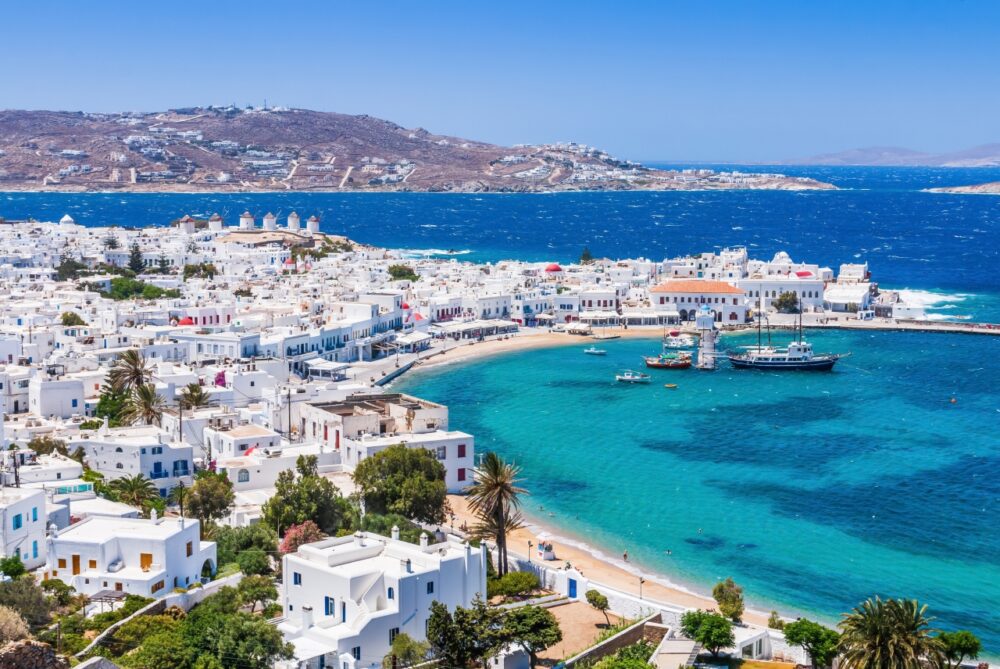
Mykonos is one of Greece’s most famous islands, known for its stunning beaches, glamorous nightlife, and charming white-washed villages. It’s a place where you can spend your days relaxing on the beach and your nights dancing at one of the island’s many clubs. I spent a day lounging at Paradise Beach, followed by an evening exploring Mykonos Town, where the narrow streets are lined with boutique shops, stylish bars, and art galleries.
For a quieter experience, head to the lesser-known beaches like Agios Sostis, where you can escape the crowds and enjoy the island’s natural beauty. Whether you’re after sun and sand or a lively night out, Mykonos offers both in spades.
4. Santorini
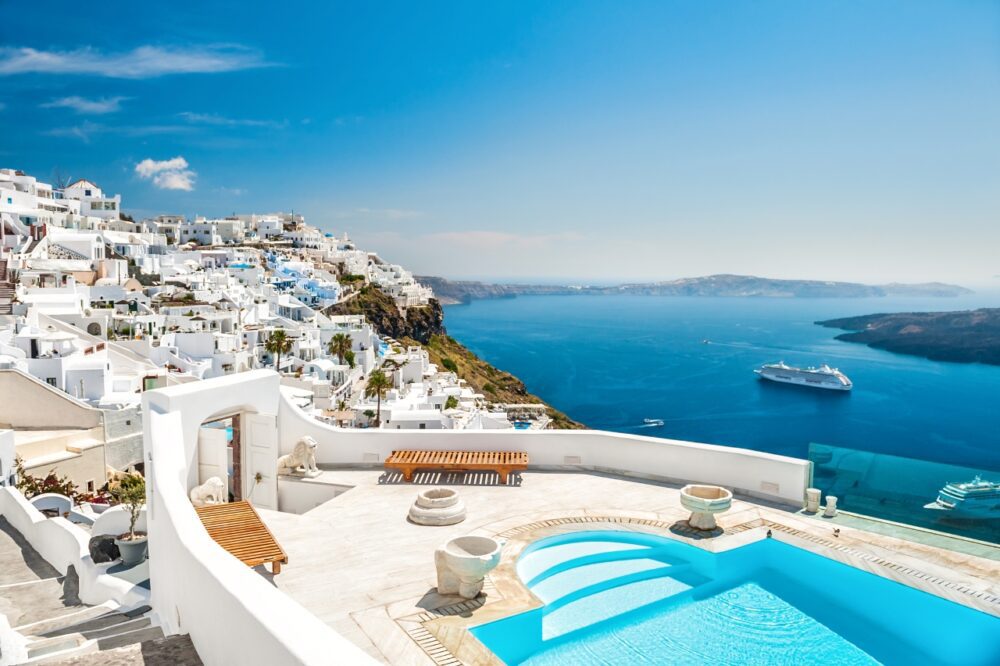
Santorini is Greece’s most iconic island, and for good reason. The island’s caldera, created by a volcanic eruption thousands of years ago, offers some of the most dramatic landscapes in the Mediterranean. The white-washed houses of Oia and Fira are perched on cliffs overlooking the deep blue waters, and the sunsets here are legendary. I spent my evenings watching the sun dip below the horizon from a café in Oia—it’s a sight I’ll never forget.
While Santorini is famous for its romance, it’s also a great destination for food and wine lovers. The island’s volcanic soil produces unique wines, particularly the crisp Assyrtiko, and the local tavernas serve delicious dishes like tomato fritters and fresh seafood. Don’t miss a visit to Akrotiri, a well-preserved ancient Minoan city often referred to as the “Pompeii of the Aegean.”
5. Crete
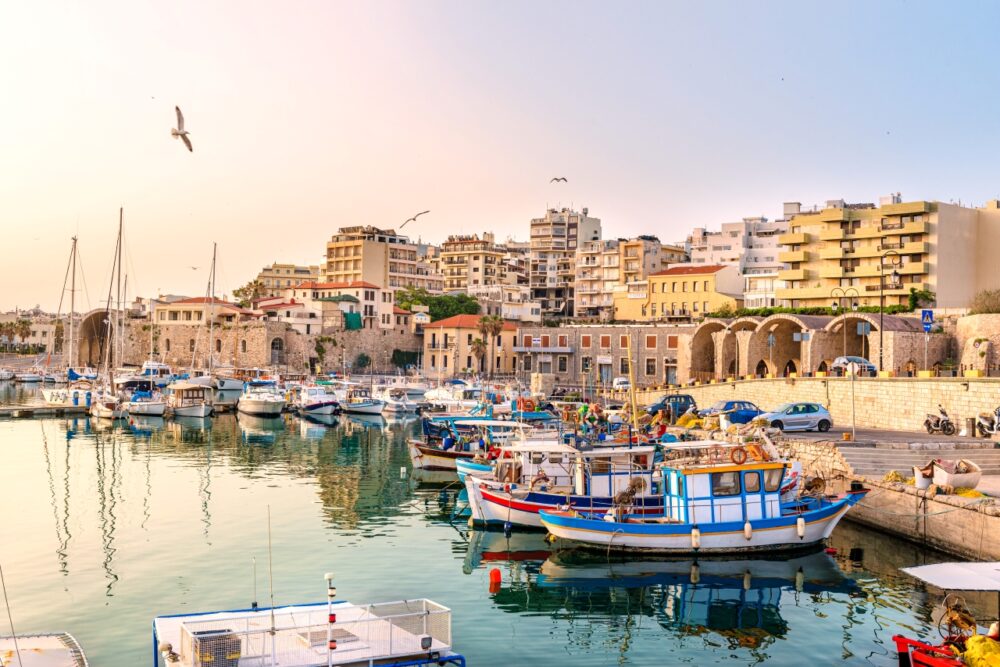
The largest of the Greek islands, Crete is a destination that has it all: beaches, mountains, history, and some of the best food in the country. I started my trip in Heraklion, exploring the Palace of Knossos, one of the most important archaeological sites in Greece. Crete’s history stretches back thousands of years, and its landscape is just as impressive—whether you’re hiking through the Samaria Gorge or relaxing on the pink sands of Elafonissi Beach.
Crete is also known for its incredible hospitality, and I found that the local tavernas serve some of the most authentic and delicious food in Greece. From hearty dakos salad to slow-cooked lamb, Cretan cuisine is rustic, fresh, and full of flavour. Whether you’re exploring the ancient ruins or discovering remote beaches, Crete offers a perfect mix of adventure and relaxation.
6. Rhodes
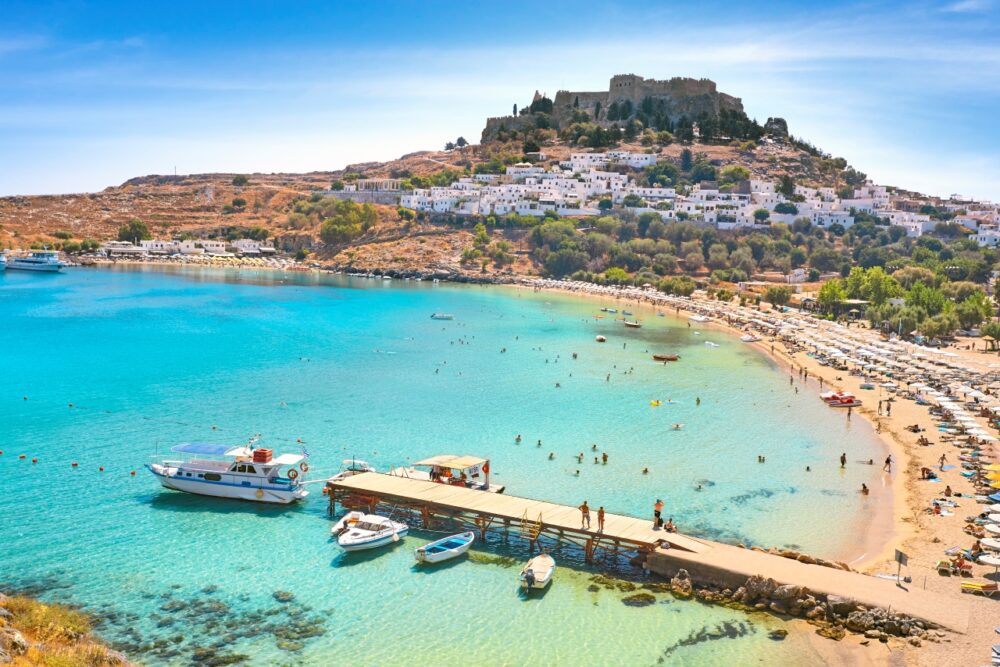
Rhodes is an island that offers both history and beaches in equal measure. The medieval Old Town of Rhodes, a UNESCO World Heritage site, is a labyrinth of narrow streets, towering walls, and centuries-old buildings. Walking through the Street of the Knights, I felt like I had stepped back in time. The Palace of the Grand Master is another highlight, with its imposing architecture and stunning views over the town.
But Rhodes isn’t all about history. The island is also home to some of the most beautiful beaches in Greece. I spent a day at Tsambika Beach, a long stretch of golden sand and crystal-clear water, perfect for swimming and sunbathing. Rhodes has a relaxed atmosphere that makes it ideal for both beach lovers and history buffs.
7. Nafplion
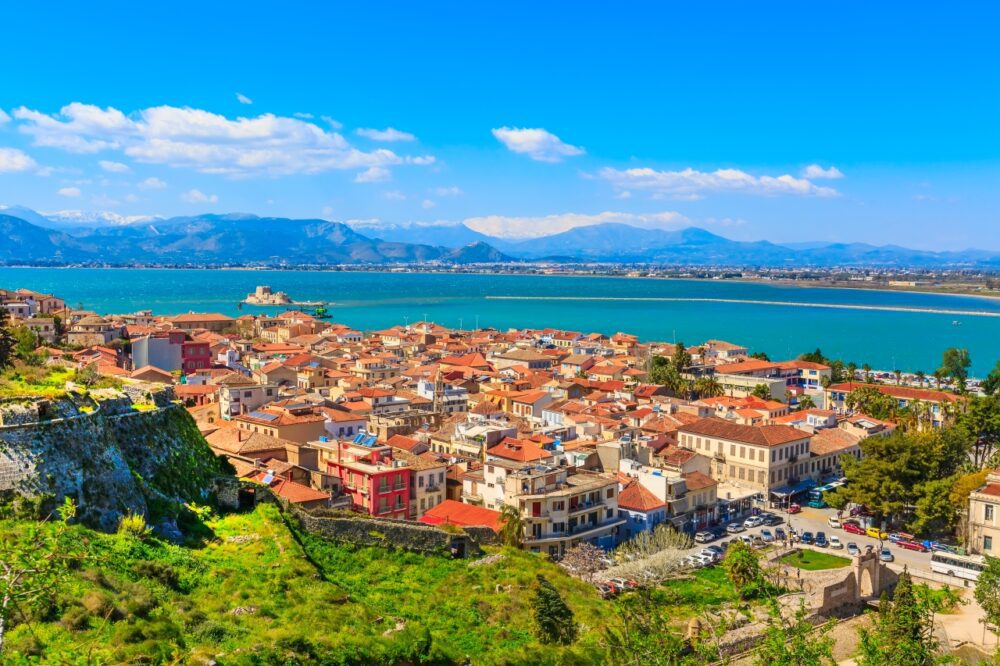
Often overlooked by tourists, Nafplion is one of Greece’s most charming and romantic towns. Located on the Peloponnese peninsula, this seaside town is full of Venetian and neoclassical architecture, with narrow streets lined with cafés and boutiques. I spent a wonderful afternoon climbing up to the Palamidi Fortress, which offers panoramic views of the town and the surrounding coastline.
Nafplion is also a great base for exploring some of Greece’s most important ancient sites, including the ruins of Mycenae and the Theatre of Epidaurus. Whether you’re interested in history or just want to relax in a beautiful setting, Nafplion is a perfect choice.
8. Zakynthos
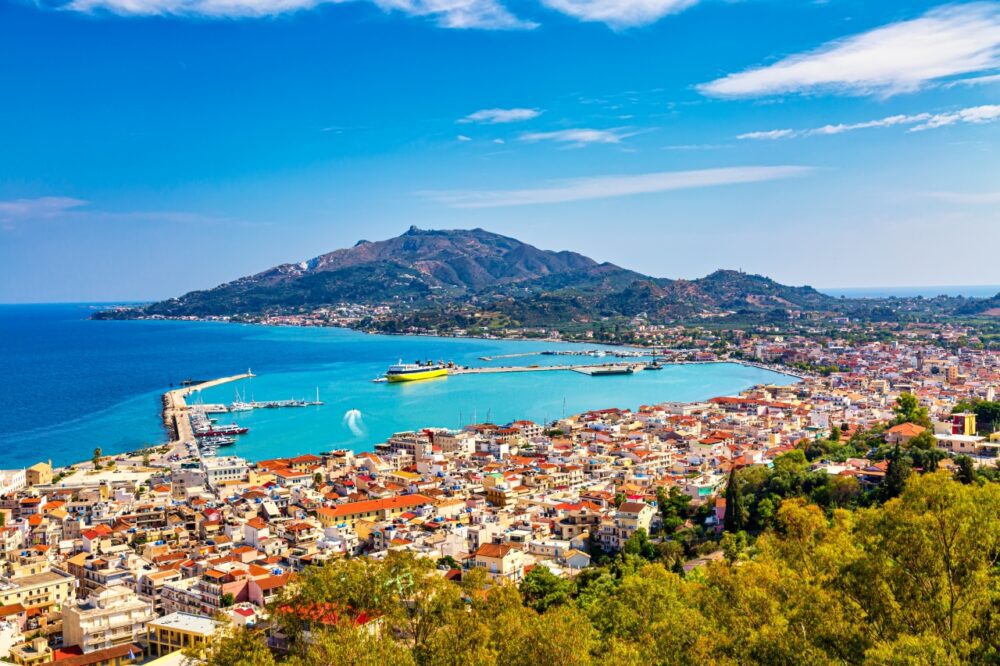
Zakynthos, also known as Zante, is famous for its stunning beaches and vibrant nightlife. The island’s most famous spot is Navagio Beach, also known as Shipwreck Beach, where a rusting ship sits on a white sandy shore surrounded by towering cliffs. I took a boat trip to the beach and spent the day swimming in the turquoise waters—it’s one of the most beautiful places I’ve ever seen.
Beyond the beaches, Zakynthos offers plenty of opportunities for hiking, snorkelling, and exploring the island’s villages. I also loved the relaxed vibe in Laganas Bay, where you can spot loggerhead turtles and enjoy the peaceful surroundings.
9. Corfu
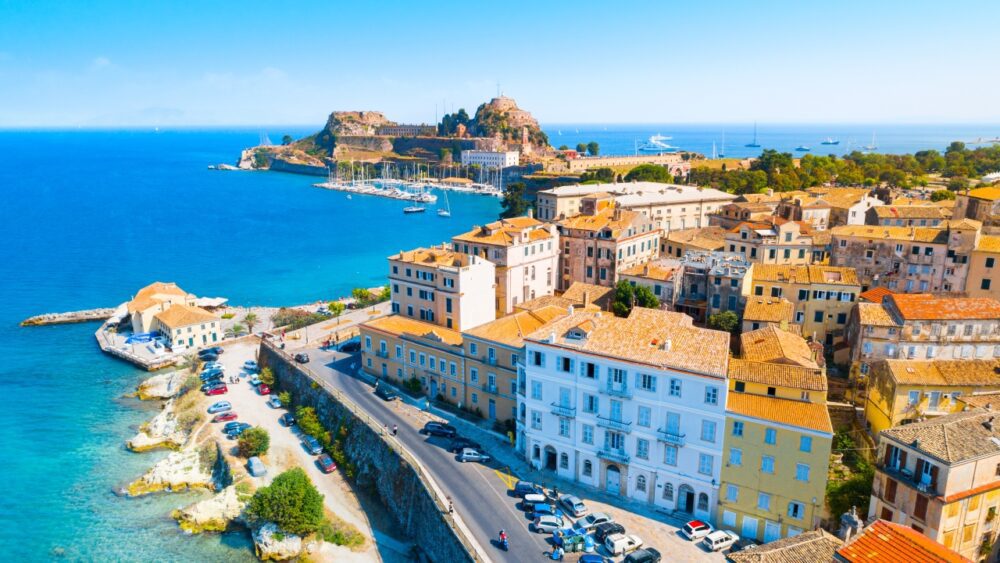
Corfu is one of the greenest Greek islands, known for its lush landscapes, beautiful beaches, and Venetian-influenced architecture. I started my visit in Corfu Town, where the narrow streets are full of historic buildings, charming squares, and lively cafés. The Old Fortress offers incredible views over the town and the Ionian Sea.
Corfu’s beaches are just as inviting. I spent a day at Paleokastritsa, a beautiful bay surrounded by olive groves and cliffs. Whether you’re looking for cultural sights, outdoor adventures, or a place to relax by the sea, Corfu has it all.
10. Kos
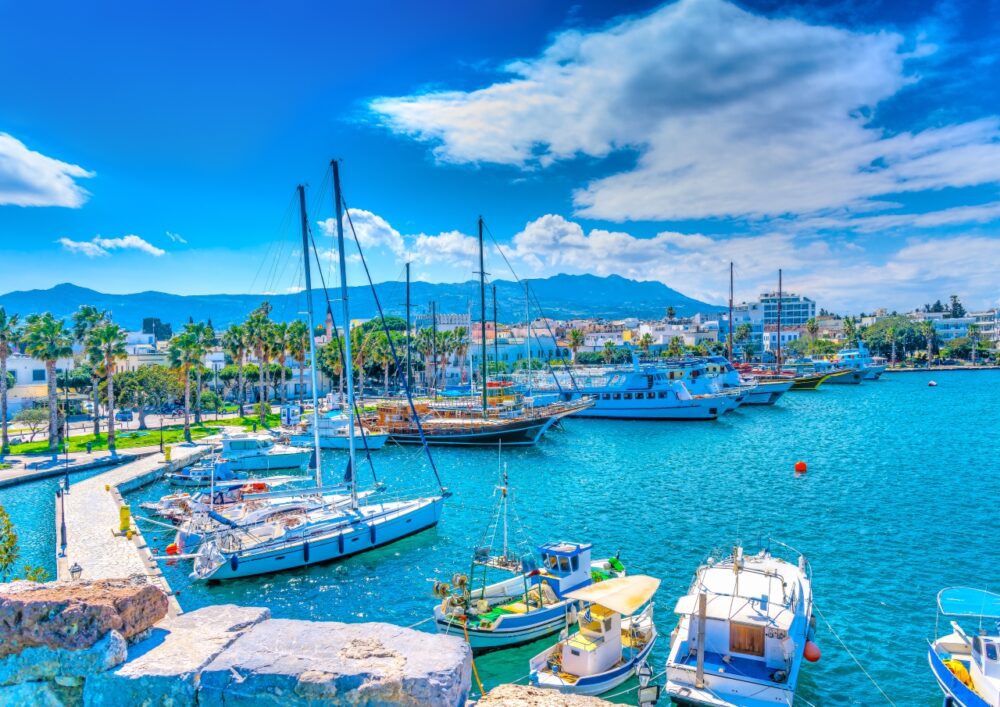
Kos is an island rich in history, with ancient ruins scattered across its landscape. The Asklepion is one of the most famous archaeological sites on the island, a sanctuary dedicated to Asclepius, the god of healing. Kos Town itself is a mix of ancient and modern, with the medieval Castle of Neratzia standing guard over the harbour.
Kos is also home to some fantastic beaches, and I spent a few lazy days soaking up the sun on Paradise Beach, known for its soft sand and clear water. For a more active adventure, I rented a bike and cycled around the island, stopping at seaside tavernas for fresh seafood.
Travel Tips for Greece
Getting Around Greece
Greece has a reliable public transport system, especially between major cities and tourist destinations. Buses are the best way to get around the mainland, with frequent services between cities like Athens, Thessaloniki, and coastal towns. For island hopping, ferries are your main option, with regular routes connecting popular islands like Santorini, Mykonos, and Crete. Renting a car is a great way to explore more remote areas or smaller islands, but be aware that roads can be narrow and winding in rural regions. In cities, taxis are affordable, but always ask for the meter to be turned on.
Best Time to Visit Greece
The best time to visit Greece is in spring (April to June) and autumn (September to October), when the weather is warm but not too hot, and the tourist crowds are smaller. These seasons are ideal for exploring the ancient sites, hiking, or enjoying the beaches without the summer rush. Summer (July to August) is the peak season, especially on popular islands, but it’s also the hottest time of the year. Winter (December to February) is quieter and cooler, and while some islands shut down, cities like Athens and Thessaloniki remain lively.
Passport and Visa Requirements for Greece
Greece is part of the Schengen Area, so visitors from EU/EEA countries can enter with just an ID card. Travellers from countries like the US, UK, Canada, and Australia can stay visa-free for up to 90 days within the Schengen Zone. Your passport should be valid for at least three months beyond your departure date. If you’re planning to visit neighbouring countries like Turkey or Albania, check their visa requirements before you go.
Currency and Banks in Greece
Greece uses the Euro (EUR), and credit cards are widely accepted in cities and tourist areas, though in more rural regions or small islands, cash is still king. ATMs are available in most towns, but it’s a good idea to carry some cash for small purchases, local markets, or at traditional tavernas. Be aware that tipping in restaurants is common—about 5-10% is appreciated, and many locals round up the bill in taxis or cafes.
Language and Useful Phrases to Know
The official language of Greece is Greek, but in most tourist areas, people speak good English. However, learning a few Greek phrases can go a long way. Try “Kalimera” (good morning), “Efharisto” (thank you), and “Parakalo” (please). Greeks are warm and hospitable, and even a small effort to speak the language is appreciated, especially in more traditional areas where English is less common.
Budgeting and Costs for Greece
Greece is relatively affordable, especially compared to other European countries. While popular destinations like Santorini and Mykonos can be pricey in peak season, you’ll find plenty of budget-friendly options on lesser-known islands and the mainland. Public transport and ferries are cost-effective, and meals at local tavernas are both delicious and reasonably priced. Consider staying in guesthouses or Airbnbs to save on accommodation, and avoid high season for the best deals.
Conclusion
Greece is a country that offers an endless variety of experiences, from its ancient ruins and vibrant cities to its stunning islands and welcoming people. Whether you’re wandering through the streets of Athens, exploring the beaches of Mykonos, or hiking the mountains of Crete, every part of Greece has its own story to tell. It’s a country where history, culture, and nature come together to create an unforgettable travel experience.
What I love most about Greece is its ability to balance the old and the new—where you can enjoy both the simplicity of life in a small village and the vibrant energy of a bustling city. Greece invites you to slow down, take in the beauty around you, and experience the world at a different pace. If you’re looking for a destination that offers something for every traveller, Greece should be at the top of your list. Trust me—you’ll fall in love.
